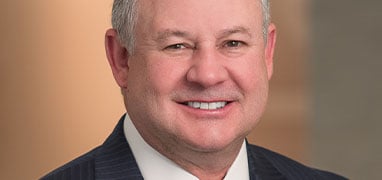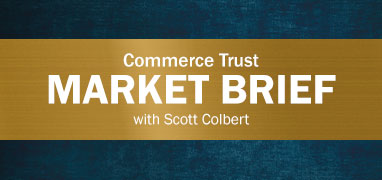Market Brief
Four Major Themes So Far This Year in the Markets
In the latest Commerce Trust Market Brief video, Scott Colbert, Chief Economist and Director of Fixed Income Management, dives into the underlying factors driving the major economic and market themes playing out so far this year and how those themes are dynamically shaping the outlook for 2026.
Look at the Markets
Commerce Trust Look at the Markets
Quarterly insights into economic and market trends from David Hagee, Chief Investment Officer, Commerce Trust, and our investment team leaders. F I R S T Q U A R T E R 2 0 2 6
Market Brief
Economic and Market Conditions Entering 2026
In the latest Commerce Trust Market Brief video, Scott Colbert, Chief Economist and Director of Fixed Income Management, recaps how U.S. markets performed in 2025, leading into the macroeconomic outlook for this year and how economic conditions could influence markets in 2026.
Podcast
A Look Inside the Equity Markets
In a new episode of the Conversations with Commerce Trust podcast, Chief Investment Officer and host David Hagee is joined by Kelly Jernigan, Director of Family Wealth Strategy, and KC Mathews, Chief Market Strategist, to take a closer look at the equity component of asset allocation, examining trends that have led to a stock market dominated by the tech sector since the end of 2022.
Outlook
2026 COMMERCE TRUST ECONOMIC AND MARKET OUTLOOK
Markets Defy Economic Tension
Perspectives and outlook on the markets and economy from the Commerce Trust investment management team.
Read the 2026 Commerce Trust Economic and Market Outlook
Magazine
Encompass by Commerce Trust
Winter 2025
For high-net-worth families, the most lasting measure of your legacy can be found in how thoughtfully assets are transferred to heirs and to philanthropic beneficiaries.
Commentary
Earnings Landscape: Downward Progression,
but Still Growth
Challenging market dynamics impacted earnings, but there is still room for growth over 2024.
Our Insights
The advisors, specialists and thought-leaders at Commerce Trust dive into the state of the economy and the financial markets — providing valuable news, perspectives and advice you can use to your advantage.




